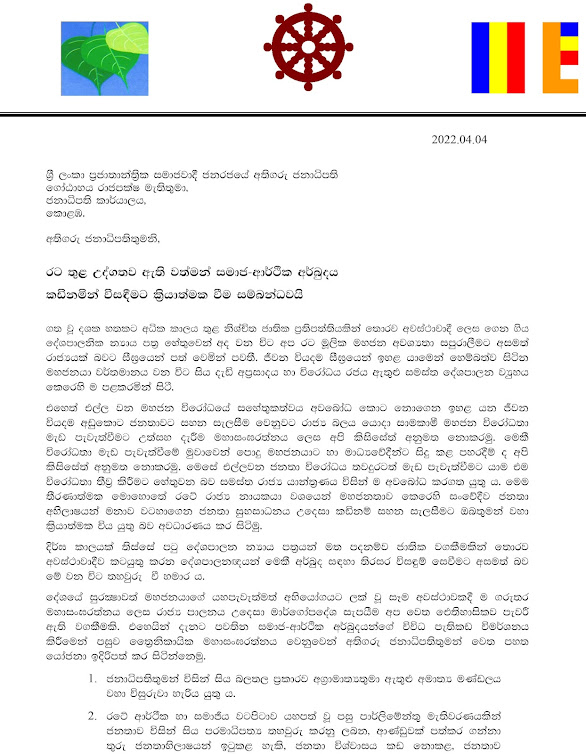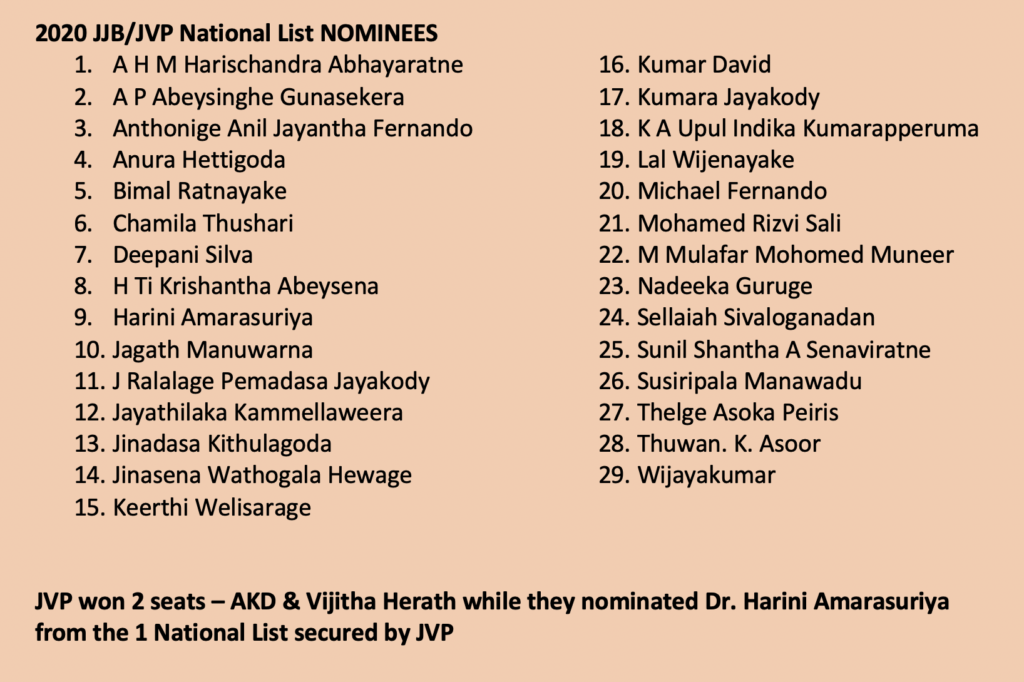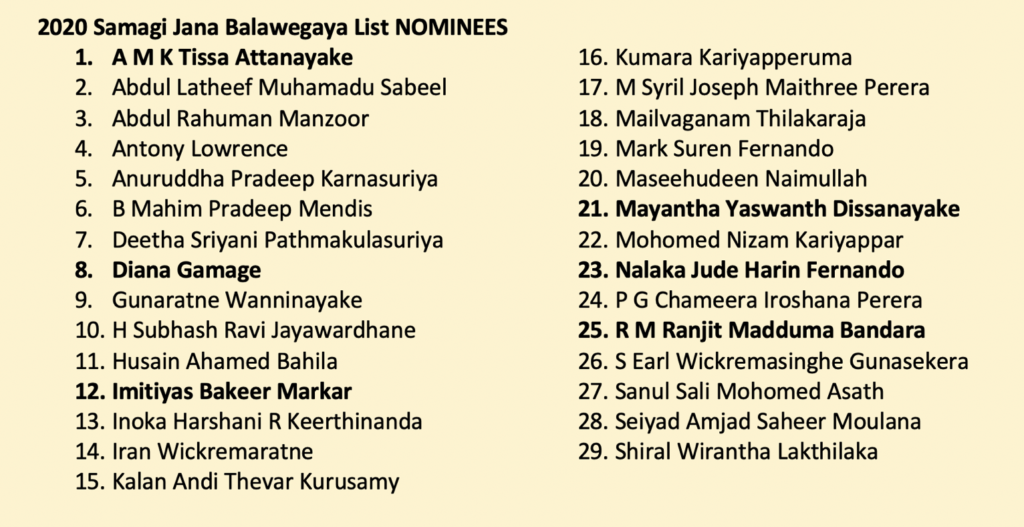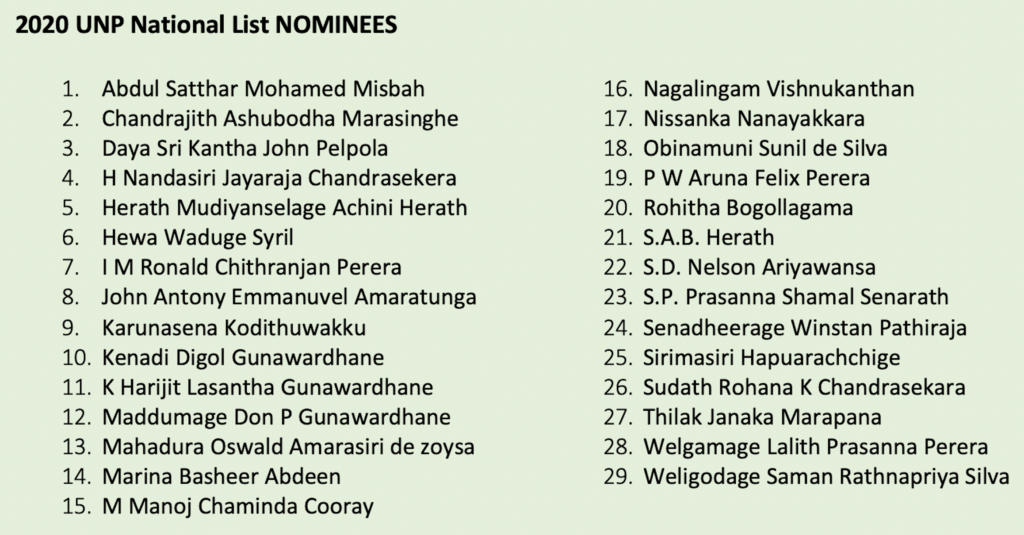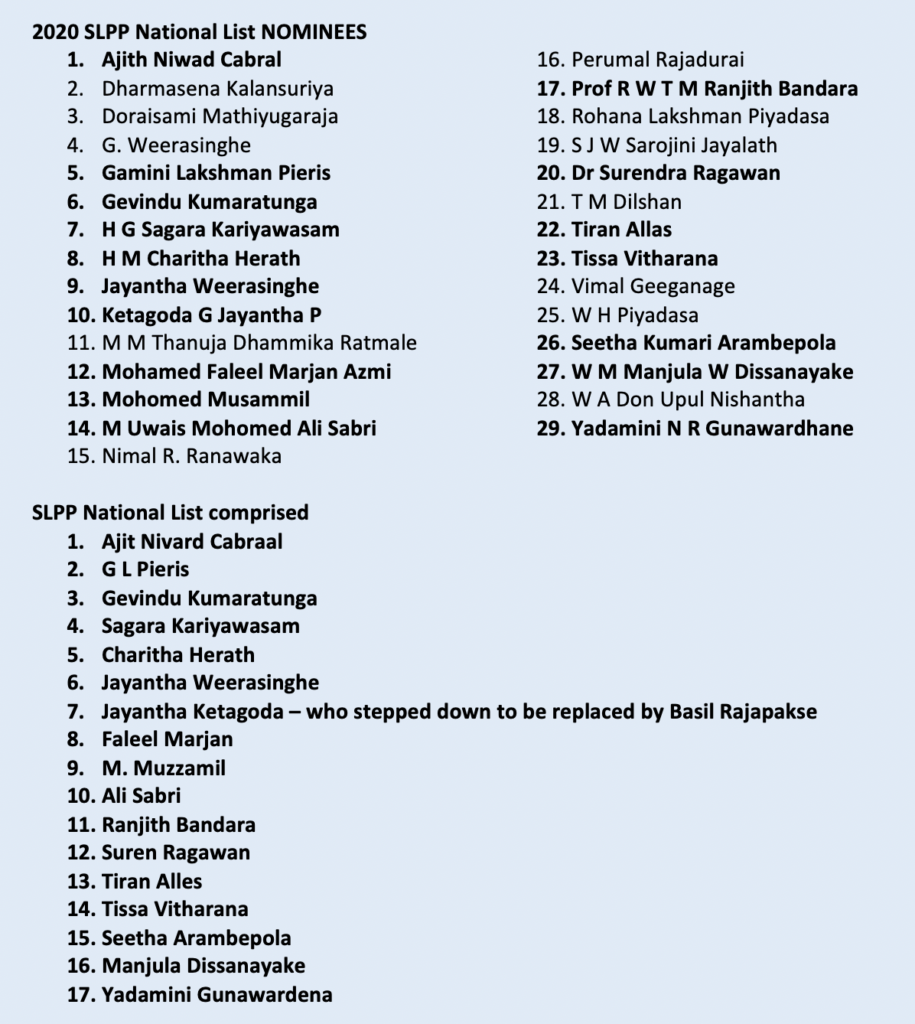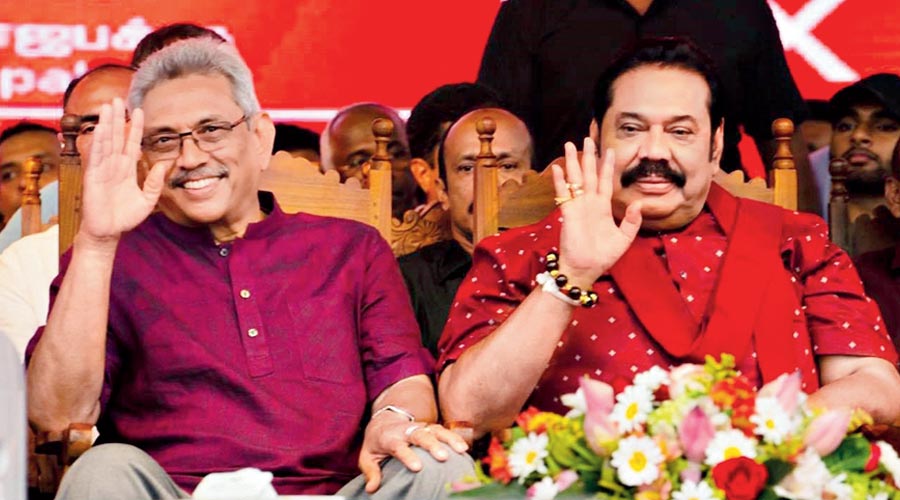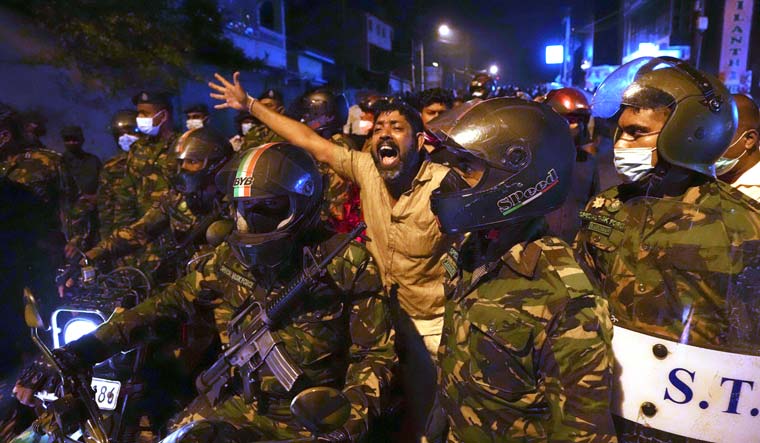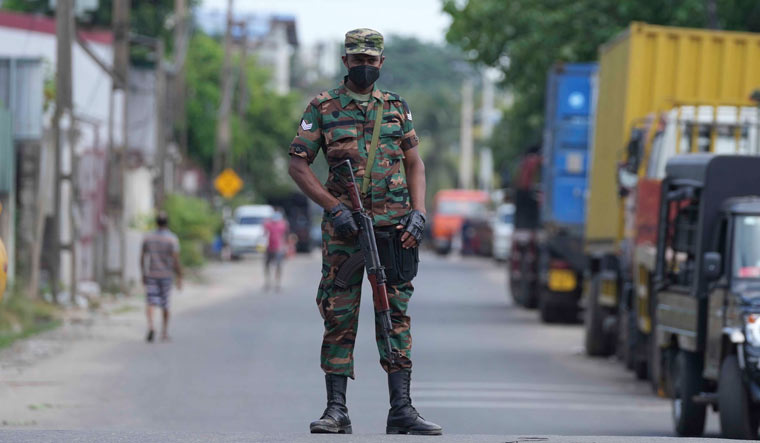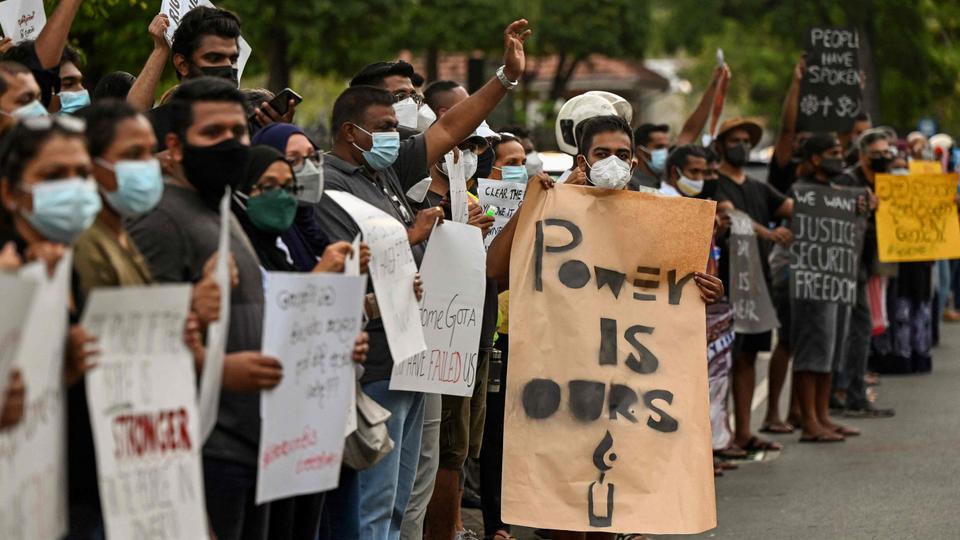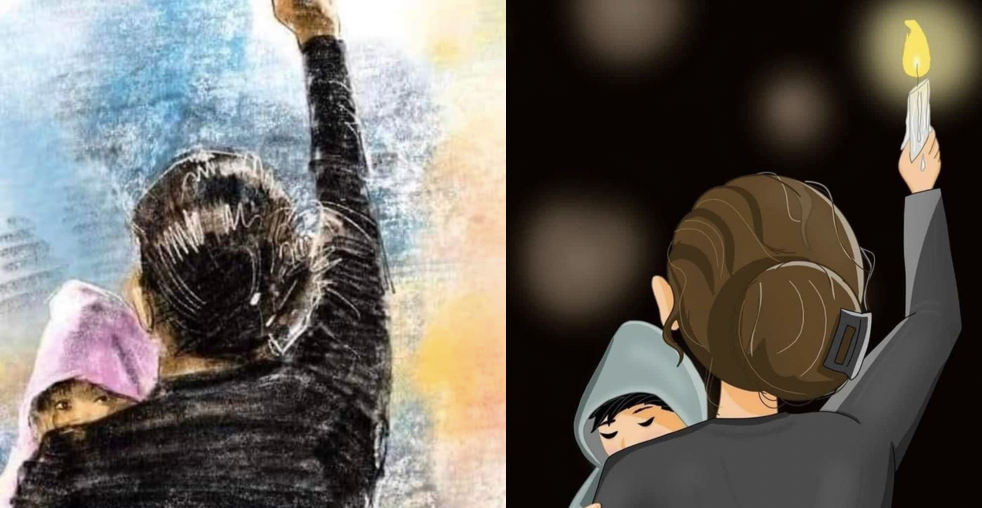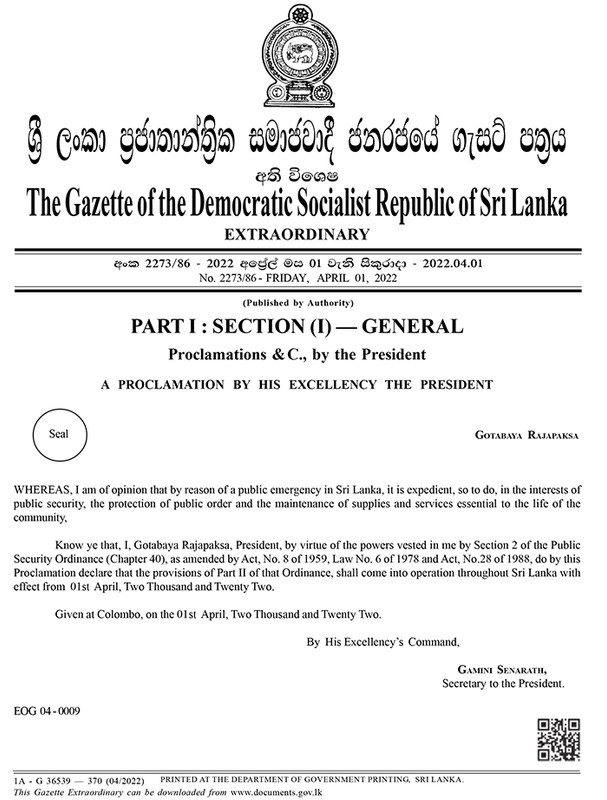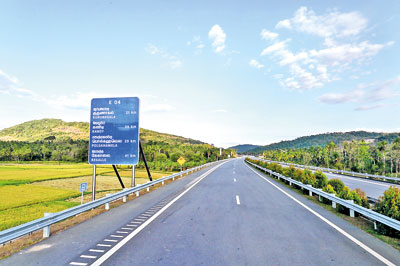චානක බණ්ඩාරගේ
දැන් සිදුවන විදුලිය කැපීම
අද ශ්රී ලංකාවේ ඇත්තේ අති දැවැන්ත විදුලිය කැපීමකි. ඇතැම් ප්රදේශවල දිනකට පැය 12ක් වැනි කාලයක් විදුලිය කැපේ. මෙයට විවිධ හේතු රජය සපයයි. ඩොලර් අර්බුදය මෙයට ප්රධාන හේතුවක් බව කවුරුත් දනීයි.
අද රටේ සහයට ඉදිරිපත් ව ඇත්තේ නොරොච්චෝලේ ලක්විජය විදුලි බලාගාරයයි. නොරොච්චෝලේ ධාරිතාවය වැඩි කර, මුළු රටම වැටිය හැකි මහා අන්ධකාරයෙන් ගලවා ගැනීමට, රජයට යම් තරමට හැකි වී ඇත. නොරොච්චෝලේත් නැත්නම්?
නොරොච්චෝලේ ඇත්තටම හැදුවේ චන්ද්රිකාද, මහින්ද ද; ඇමරිකන් ඩොලර් 500කින් හැදිය හැකිව තිබු නොරොච්චෝලේ ඇමරිකන් ඩොලර් 1500ක පමණ වියදමකින් අවසන් වුයේ මන්ද, චීනයෙන් කෙලින්ම ඩොලර් 500ක කොමිෂන් ඉල්ලුවේ නම් ඒ කවුද (එක් පුද්ගලයෙක් මේසා විශාල ධන සම්භාරයක් තනිවම ගිල්ලේ නම් එම රට බංකලොත් වී යාම අරුමයක් නොවේ), වැනි දේ විග්රහ කිරීම මේ ලිපියේ අරමුණ නොවේ.
මෙවැනි විදුලි කැපීම් වලින් රටට කොපමණ පාඩුවක් සිදු වේද? රෝහල්වල ශල්යකර්ම ඇණ සිට ඇත. කොපමණ ප්රමාණයක් ලෙඩුන් මැරෙන්න ඇද්ද? නිවෙස්වල විභාග වලට පාඩම් කරන පාසැල් ළමෝ ආලෝකය සපයා ගැනීම සඳහා ඉටිපන්දම් සොයා වෙළඳ සැල් පීරා යත්. රජයේ සහ පෞද්ගලික ආයතනවල වැඩකටයුතු බෙහෙවින් ඇණ සිට ඇත. සේවකයන් වේලාසනින් නිවෙස් කරා යැවීමට බොහෝ ආයතනවලට සිදු වී ඇත. සුපර් මාර්කට්, මධ්යම සහ කුඩා වෙළඳ සල් වල පමණක් නොව නිවෙස්වල පවා ශීතකරනවල ආහාර නරක් වී විශාල ප්රමාණයෙන් ආහාර අහක දමන තත්ත්වයන් උද්ගතවී ඇත. මිරිහානේදී රැස්වුවන්ගේද එක් ප්රධාන සටන් පාටයක් වුයේ ‘විදුලිය දියව්’ යන්නය.
නොරොච්චෝලේ අද අපේ සහායට සිටී. එය අධිබල විදුලි බලාගාරයකි. අප ශ්රී ලංකාවට ඇත්තේ එවැනි එකක් පමණි. ඉතා වැඩිවන විදුලි ඉල්ලුම අනුව නොරොච්චෝලේ පමණක් අපට මදිය. සාම්පුර් අවශ්ය වන්නේ ඒ නිසාය. මේ දෙකම ගල් අගුරු බලාගාරය.
මහින්ද රාජපක්ෂ රජය සාම්පුර් ඉදිකිරිම සඳහා ඉන්දියාවෙන් ඇමරිකන් ඩොලර් මිලියන 600ක ආධාර (US$600 million) අනුමත කරගෙන තිබුණි (ණය නොවේ). නමුත්, යහපාලන රජය විසින් 2016දී මෙම ව්යාපෘතිය මුළුමනින්ම අවලංගු කරන ලදී. ඒ සිරිසේන මහතා විසින් ගන්නා ලද අමනෝඥ තීරණය නිසාය.
පුනර්ජනනීය බලශක්තිය
අද, ගල් අඟුරු වෙනුවට පුනර්ජනනීය බලශක්තියෙන් (සුළං, සොලාර්) පමණක් ඉදිරියේදී විදුලිය ජනනය කරන්නෙමු යයි රජය පැවසීම රටට වැඩ දායක වූ ප්රතිපත්තියක් නොවේ. එය හරියට පැය 24න් රසායනික පොහොර වෙනුවට කාබනික පොහොර යොදමු යයි කීවා වැනි දෙයකි. අවසානයේදී අමාරුවේ වැටෙන්නේ ජනතාවය.
ලොව කිසිම රටක් සුළං, සොලාර් වලින් පමණක් සිය විදුලිබල සැපයුම සම්පුර්ණ කරගෙන නැත.
සුළං මාපක විදුලි බලාගාර
මෙම ලියුම්කරු දන්නා පරිදි මුළු ශ්රී ලංකාවටම අද ඇත්තේ සුළං මාපක විදුලි බලාගාර 16කි. ඒ සියල්ලෙන්ම නිපදවුණු ලබන්නේ මෙගා වොට් 230ක් පමණ වූ සුළු විදුලි බලයකි. මේ බලාගාරවල යටිතල ඉදිකිරීම් වියදම් ඉතා වැඩිය. වාර්ෂික නඩත්තු වියදම් ද වැඩිය. මේවා සුළඟේ වේගය බිදින නිසා වායු ඌෂ්ණත්වය වැඩිවී වාතයේ කාර්බන් ඩයොක්සයිඩ් (CO2) ප්රතිශතය ඉහල නංවයි. ‘green house’ ගෑස් නිපදවනවාට අමතරව සමහර සුළං බලාගාර අධික ශබ්ධයක් විහිදුවයි. සුළං බලාගාර ඉදිකිරීමට විශාල භුමි ප්රමාණයක් වැයවේ. ඒවා බොහෝ විට උස් භුමි ද විය යුතුය. හොඳින් සුළං ලැබෙන ප්රදේශ විය යුතුයි. මුහුද ආශ්රීත භුමි වලින් වැඩි ප්රයෝජනයක් ලබා ගත හැක්කේ මෙවන් සුළං බලාගාර ඉදි කිරීමන් නොව සංචාරක හෝටල ඉදිකිරීමෙනි.
සොලාර් පවර් බලාගාර
සොලාර් පවර් බලාගාරවල තත්ත්වයද එසේමය. ලංකාවේ දැනට තිබෙන සොලාර් පවර් ෆාර්ම් 5න් නිපදවන්නේ මෙගා වොට් 143ක පමණ ඉතා සුළු විදුලි බලයකි. මෙවාට විදුලි බලය නිපදවන්න හැකි වන්නේ සූර්යයාගෙන් එන ඍජු හිරු එළියෙන් පමණය. සොලාර් පැනල් නිවෙස් ඒකකවලට හොඳින් හිරු එළිය පතිතවන දිනවල ආලෝකමත් කිරීමට ඉතා කදිමයි. නිල් අහසේ ඇති එළියෙන් විදුලි බලය නිර්මාණය කිරීමට ඒවාට නොහැක. තවද, රාත්රී කාලයේදී විදුලි බලය නිර්මාණය කිරීමක් සිදු නොවේ. සොලාර් ෆාර්ම් ඉදිකිරීමේ වියදම් ඉතා අධිකය. සවි කරන්නන්ට ඉහල විශේෂඥ දැනුමක් තිබීම ඉතා අවශ්යයි. ඉතා මිල අධික සොලාර් පැනල් පිටරටින් ගෙන්විය යුතුය. හිරු එලිය අඩු හෝ නැති දිනවල/වැසි දිනවල සොලාර් පැනල් වලින් විදුලිය උත්පාදනය නැත/අඩුය; ඒ දිනවල වෙනත් ක්රම වලින් විදුලි බලය නිෂ්පාදනය කර බෙදාහැරීමට සිදුවේ.
සුළං සහ සොලාර් කුඩා ව්යාපෘති වශයෙන් යම් ප්රදේශවලට විදුලිය උත්පාදනය කිරීමට යොදා ගත්තාට කමක් නැත. නමුත් මුළු රටක, අති විශාල වූ විදුලි බල ඉල්ලුම ඒවාට සැපයිය නොහැක. ශ්රී ලංකාවට මෙගා වොට් 500ක ඉතා කඩිනම් අවශ්යතාවයක් ඇත.
නමුත්, සුළං සහ සොලාර් ගැන පමණක්, 100%, විශ්වාසය තබා සිටින රජය, ඒ වෙනුවෙන් ඉමහත් කැපවීමකින් වැඩ කරයි. අනෙක් විදුලි බල සැපයුම් මාර්ග ගැන අවධානයක් යොමු නොකරයි.
මේවා ඉදිකිරීමට උතුරේ සහ නැගෙනහිර වටිනා ඉඩම් රජය විසින් තරඟයට මෙන් චීනයට සහ ඉන්දියාවට පවරා දෙමින් සිටී. කල්පිටිය, මන්න්නාරම, තලෙයිමන්නාරම, මුත්තුර්, සාම්පුර්, කයිට්ස්/ඩෙල්ෆ්ට් දුපත් ලංකාවේ ඉතා අගනා සම්පත් වේ. මේ වටිනා ඉඩම් සුළං සහ සොලාර් ව්යාපෘති සඳහා නොව සංචාරක වැනි කර්මාන්ත වලට යෙදවීමෙන් රටට විශාල ආදායමක්, රැකියා අවස්ථා ඇති කරගත හැකියි.
චීනයට, අදානිට අක්කර දහස් ගණනින් ඉඩම් රජය දෙන්නේ දීර්ඝ කාලින බදු පදනම මතය, අවුරුදු 99 වැනි. මේවා දෙන්නේ නිකම්ද? නැත්නම් ගෙවූ මුදල් මොනවාද?
ඒ අය යටිතල පහසුකම් සඳහා මුදල් ආයෝජනය කරන බව සැබවි. රජයට කිසිදු මුදලක් වියදම් නොවී ඔවුහු විදුලි බලය උත්පාදනය කරනු ඇත. එහෙත්, ඔවුන් මේ සුළං සහ සොලාර් බලාගාර වල නිපදවන විදුලිය නැවත විකුණන්නේ ශ්රී ලංකා රජයටයි (විදුලි බල මණ්ඩලයට). ඔවුන් ඉල්ලන්න ඕනෑම අධ්ක මිලකට විදුලි බලය මිලදී ගැනීමට අපට සිදුවේ. ඉදිරියේදී, අපව මුල්ලකට තල්ලු කර, හිර කර තැබීමට ඔවුනට හොඳටම හැකියාව ඇත. ජනතාවට විදුලිය සඳහා දරන්න බැරි මිලක් ගෙවීමට සිදුවේද?
ජල විදුලිබලාගාර
ජල විදුලිබලාගාර අසාර්ථක බව මුළු ලොවම දැන් පිළිගෙන ඇත. මෑතක සිට අධික වර්ෂාවක් ශ්රී ලංකාවට පතිත වේ. මෙය ජල විදුලි උත්පාදනයට මහත් වාසියකි. නමුත් කවදා නියඟයක් පැමිනෙන්නේදැයි කිසි වෙකුටත් කිව නොහැක. දැනටත් බොහෝ ප්රදේශවල නියං සමයන් ඇත. අනික, ජල විදුලි බලාගාරයකින් උත්පාදනය කල හැක්කේ සොච්චම් විදුලි බලයකි.
මහවැලියෙන් දැවැන්ත ජල විදුලි බලාගාර 8ක් තනනු ලැබීය – වික්ටෝරියා, කොත්මලේ, ඉහල කොත්මලේ, රන්දෙනිගල, උමා ඔය, රන්ටැඹේ, බෝවතැන්න, මොරගහකන්ද, නිලාඹේ ඒවා වේ. මේ වෙනුවෙන් වියදම් කරන ලද ධන ස්කන්ධය කෝටි ප්රකෝටි ගණනකි. එහෙත් ඒ සියල්ලෙන්ම ජනනය කරන්නේ මෙගා වොට් 957ක විදුලි බලයකි.
මහවැලි ජල විදුලියෙන් අප රටට පමණක් නොව ඉන්දියාවටද විදුලි බලය විකුණන බවට එදා පාලකයෝ කයිවාරු ගැසුහ. මහවැලියෙන් සිදුවූ ඉඩම් විනාශය, පරිසර හානිය කියා නිම කල නොහැක. මහවැලියෙන් එළි කරන ලද කැලෑ භුමි ප්රමාණය පමණක් හෙක්ටයාර 256,000ක් පමණ වේ. මෑතකදී නිම කරන ලද මොරගහකන්ද නිසා සමහරවිට ඊටත් වැඩි විය හැක. අලි- මිනිස් ගැටුම පටන් ගත්තේ මහවැලිය නිසාය. මහවැලිය නිසා ආදීවාසීහුනට ආගිය අතක් නැති විය. ශ්රී ලංකාවේ දේශපාලනයේ මහා පරිමාණ මුදල් වංචා කිරීම්, කොමිස් ගැහිලි, පටන් ගැනුනේ මහවැලියෙනි.
මහවැලි හැර සෙසු ජල විදුලි බලාගාර වලින්ද නිපදවන්නේ කුඩා මෙගා වොට් විදුලි බලයකි – සමනල (124), කැනියන් (100), කුකුලේ ගඟ (80), ලක්ෂපාණ (75), මස්කෙළිය (60), කාසල්රි (50) සහ නොර්ටන් (50).
ජල විදුලිබලාගාර එම ජල මුලාශ්රවල සිටින සතුන්ට ඉතා අහිතකරය. ජල විදුලි බලාගාර නිසා අවට ජලයේ ඔක්සිජන් ප්රමාණය අඩුවේ. මේ නිසා වන ජීවින් එම ජලයෙන් අතුරුදහන් වී යයි. ජල මුලාශ්ර මැදින් යොදන කොන්ක්රීට්/යකඩ බාධක නිසා මාළුනට වතුරේ නිදහසේ පීනා යා නොහැක. විශේෂයෙන්ම ඔවුන්ගේ අභිජනන කටයුතු වලට බාධා සිදුවේ. පොල්ගොල්ල, වික්ටෝරියා සෑදීමට පෙර කටුගස්තොට, පේරාදෙණිය, ලේවැල්ල, නත්තරම්පොත, තෙල්දෙණිය වැනි ප්රදේශවල මහවැලි ගඟේ ජල මට්ටම සෑම විටම ඉහලටම පිරී තිබුන බවත්, මෝරුන් තරම් ලොකු මත්ස්යයන් පීනමින් සිටි බවත් පැරැන්නෝ පවසත්. අද තැන්නේකුඹුර පැත්තේ මහවැලි ගඟේ වතුර නොමැතිව කළු ගල් තට්ටු පෑදී ඇත.
ජල විදුලි බලාගාරයක් තනනවා කියා කැළණි ගඟේ කිතුල්ගල ‘white water rafting’ ජල ක්රීඩාව නවතන තැනට කටයුතු සිදු කෙරිණ. ජල ක්රීඩාව සඳහා ලෝකයේ ඇති හොඳම ස්ථානයකි මෙය.
ඩීසල් සහ LNG (තාප) විදුලි බලාගාර
අපට තාප විදුලිබල මධ්යස්ථාන කිහිපයක් තිබේ. මේවායින් ප්රාමාණික විදුලි බලයක් ජනනය කරගන්නෙමු. කැළණිතිස්ස (මෙගා වොට් 360), නව කැළණි තිස්ස (මෙගා වොට් 172) ඒවායින් ප්රධානය. නමුත් ඒවාට අවශ්ය ඉන්ධන වෙනුවෙන් අප වියදම් කරන්නේ ඉතාම අධික මුදලකි. අද ඩීසල් (ඩොලර්) නොමැති කමින් මේ තාප විදුලිබල මධ්යස්ථාන වසා දමන තත්ත්වයකට පත්වී ඇත.
කෙරවලපිටිය LNG බලාගාරය අපට මෙගා වොට් 300 ක විදුලි බලයක් සපයයි. මෙය සඳහා අවශ්ය වන ද්රවශීලී ගෑස් අප පිටරටින් ගෙන්වන්නේ ඉතාම අධික මිලකටය (පසුගිය රජයේ අමනෝඥ විදුලිබල ප්රතිපත්තිය නිසා සාම්පුර්ණ වෙනුවට කෙරවලපිටිය ඉදිකරනු ලැබීය).
ගල් අඟුරු බලාගාර
තනි නොරොච්චෝලේන් පමණක් මෙගා වොට් 900ක් ජනනය කරනු ලැබේ. ගණනය කරන ලද සාම්පුර්හි ධාරිතාවය මෙගා වොට් 500කි. මෙය මෙගා වොට් 1,000කට පමණවත් වැඩි කර සාම්පුර් තැනීමට රජය කටයුතු කල යුතුය.
ශ්රී ලංකාවේ විදුලි බල ප්රශ්නයට හොඳම විසඳුම ගල් අඟුරු වලින් ක්රියා කරන සාම්පුර් විදුලි බලාගාරය ගොඩනැගීම බව මෙම ලියුම්කරු අවධාරණයෙන් කියා සිටීයි. තවදුරටත් එම ආධාරය ඉන්දියාවෙන් ලැබෙදැයි අවිශ්වාසය; ශුර නායකයෝ මෙවන් ආධාර ලබාගන්නා හැටි දනිති.
ඒ කෙසේවෙතත්, අපේ වියදමින් හෝ කෙසේ හෝ සාම්පුර් සදා ගනිමු. ඉන්පසු විදුලිය ගැන බියක් නැතිව රට වැසියන්ට ජීවත් වීමට ඉඩ ලැබෙනු ඇත. එය රජය ගැන ජනතාවගේ දැනට තිබෙන විශාල අප්රසාදය අඩු කර ගැනීමටද මඟක් වේ.
සාම්පුර් ලැබුණු පසු සාධාරණ මුදලට, ඕනෑතරම් විදුලි බලය තිබෙන නිසා, සීග්ර ආර්ථික දියුණුවක් ඇති වනු ඇත. ඉන්දියාවට කෙසේ වෙතත් මාලදිවයිනට හෝ අපට විදුලි බලය විකිනීමට හැකි වෙනු ඇත.
සාම්පුර් ගල් අඟුරු බලාගරයකින් රටේ විශාල විදුලි අතිරික්තයක් ඇති වනු ඇත. මේ අතිරික්ත විදුලිය ශ්රී ලංකාව දකුණු ආසියාවේ බිට් කොයින් කැනීමේ මධ්යස්ථානය බවට පත් කර ගැනීමට යොදවා ගත හැකි වනු ඇත (bitcoin mining). මේ මඟින් ශ්රී ලංකාව ඉතා ධනවත් රටක් බවට පත් කර ගත හැක.
නිෂ්පල අධිවේග වලට මුදල් වියදම් කරනවාට වඩා කලයුතු ව තිබුනේ සාම්පුර් වැනි අත්යාවශ්ය දේ සෑදීමයි. තවත් අත්යාවශ්යම දෙයක් වනුයේ මහ නගරවල ද්රනේජ් මළාපවාහණ පද්ධති ඉදි කිරීමයි. එවිට නළ මඟින් වැසිකිලිවල මළාපවාහන කෙලින්ම නිවසින් ඉවතට බැහැරවේ; නිවෙස්වල වැසිකිලි වලවල් කැපීම අනවශ්යවේ. බොහෝ දියුණු රටවල ප්රධාන නගරවල පමණක් නොව පිටිසර ප්රදේශවල පවා ද්රනේජ් මළාපවාහන ක්රමයන් ක්රියාත්මක වේ. මේ පහසුකම ශ්රී ලංකාවේ තිබෙන්නේ කොළඹ සහ යාපනය මහ නගර සභා ප්රදේශවල පමණි.
’climate change’
’climate change’ (දේශගුණික විපර්යාස) සංකල්පය යටතේ සාම්පුර් සාදනවාට විරුද්ධව යම් යම් බලපෑම් ජාත්යාන්තරයෙන් පැමිණිය හැක. සිරිසේන රජය සාම්පුර් නැවත්වුයේ මේ නිසාය. රටට ආදරය කරන නැණවත් නායකයෝ ජාත්යාන්තරයද ජය ගෙන මෙවැනි දේ ගොඩ නැගීමේ මඟ දනිති.
අද යුක්රේන් යුද්ධය නිසා ‘climate change’ විවාදය යට ගොසිනි. අද නව තෙල්, ගෑස්, ගල් අඟුරු ආකර සෙවීමේ කැනීම් වැඩියෙන්ම කරන්නේ ’climate change’ ගැන වැඩියෙන්ම කෑ ගසන රටවල්ය. ඇමරිකාව, කැනඩාව, නෝර්වේ, ඕස්ත්රේලියාව උදාහරණ වේ.
චීනය සහ ඉන්දියාව තවමත් නව ගල් අඟුරු බලාගාර හදති. ඔවුහු පුහු ජාත්යාන්තර තර්ජන වලට බය නැත. 2021 නොවැම්බර් වල ස්කොට්ලන්තයේ ග්ලාස්ගෝ වල පැවතී 26 වෙනි climate change සමුළුවේදී ඔවුහු ඒ බව යලි තීව්ර කළහ. එම රටවල් දෙක මෑතදී දියුණු වූ රටවල්ය; දියුණු වුයේ ගල් අඟුරු බලාගාර නිසාය. මෙය ලොව සියළු පොහොසත් රටවලට ද බලපෑ සිද්ධාන්තයකි.
‘global warming’ යන වචනය අසමත් වූ පසු ඔවුහු ‘climate change’ කියා එය වෙනස් කර ගත්හ. ‘climate change’ අප රටට ඇත්තකි. අපිට ඇද හැලෙන දැවැන්ත වර්ෂාව, දැඩි නියං වලින් එය මනාව පෙනේ. මිට වසර පහකට එහා එවැනි දැඩි දේශගුණික විපර්යාස මෙරට සිදු නොවුණි.
නමුත්, ලෝකය තුල හුදු ෆොසිල් ෆියුඑල් දහනය නිසා වායුගෝලයේ CO2 ප්රතිශතය ඉහල යාමෙන් ‘climate change’ සිදු වෙනවාය කියා ස්ථිරවම කියන්නේ කෙසේද? ස්වභාව ධර්මය විසින් කාලගුණ විපර්යාස අවුරුදු මිළියන ගණනක් තිස්සේ සිදු කර ඇත. ඉදිරියටත් සිදු කරනු ඇත. මේ දැන් සිදු වෙමින් පවතින ‘climate change’ ද එවැනි දෙයකි. සාම්පුර් සෑදුවා කියා මුළු ලෝකයේම ඌෂ්ණත්වය වැඩිවනු ඇතැයි සිතා බීය වෙන්නේ මෝඩ නායකයෝය.
චීනය, ඉන්දියාව (ලංකාව) වැනි රටවල් ගල් අඟුරු තාප බල ස්ථාන නිපදවා තම රටවල් දියුණු කරනවා දැකීමට බටහිර දියුණු රටවල් (විශේෂයන්ම මහා බ්රිතාන්යය, යුරෝපය) අකමැතිය. එංගලන්තයේ, යුරෝපයේ අද ගල් අඟුරු ආකාර හිස්ය. ඒවායේ ගල් අඟුරු පාවිච්චි කර ඔවුහු ඉතා ධනවත් වුහ. ඔවුන්ගේ දැනට තිබෙන ගල් අඟුරු විදුලි බලාගාර ඔවුහු නොවසති, දිගටම පවත්වා ගෙන යති. නමුත් අපට ඒවා ඉදි නොකරන්නැයි ඔවුහු කියති. ඒ බොහෝ රටවල දැන් න්යාෂ්ටික විදුලි බලාගාර ද ඇත.
අපට පඬි වදන් දෙන රටවල් කියන්නේ ඔවුන් නිපදවන අධි වියදම් වූ සුළං, සොලාර් පැනල්, න්යාෂ්ටික බලාගාර, විදුලි ජෙනරේටර් ආදිය මිලදී ගන්න කියායි.
ශ්රී ලංකාවේ න්යාෂ්ටික බලාගාර ඉදි කල යුතුයයි පසුගිය රජයේ එක් ඇමතිවරයෙක් මහ හඬක් නැගීය. 1986 චෙර්නෝබිල් න්යාෂ්ටික බලාගාර අනතුර මතක් වේ. එවිට, දැනෙන භීතීය අති මහත්ය.
ලෝක ඌෂ්ණත්වය ඉහල යන්නේ ගල් අඟුරු දහනය නිසා පමණක් නොවේ. තෙල්/ගෑස් දහනය, කැලෑ කැපීම නිසාද ලොව ඌෂ්ණත්වය ඉහල යයි.
ග්ලාස්ගෝ සමුළුවෙන් පසුවත් (යුක්රේන යුද්ධයට පෙර) ඇමරිකාව සහ කැනඩාව මහා පරිමාණයෙන් තම තෙල් ගවේෂක කටයුතු කළහ. ට්රම්ප් මෙම සමුළුවට කෙලින්ම විරුද්ධ විය. රුසියාව, නෝර්වේ වැනි රටවල් ආර්ටික් කළාපයේ මුහුදු පත්ලද හාරා තෙල්,ගෑස් එලියට ගනිති. ඉදිරියටත් ගනු ඇත. සෞදි අරාබියාව, කුවේට්, ඕමාන් වැනි රටවල් බොර තෙල් නිපදවීම අඩු කිරීම වෙනුවට නිෂ්පාදනය තවත් වැඩි කරති. අන්තිම තෙල් බිංදුව දක්වා ඔවුන් භුමිය හාරනු ඇත. චීනය, ඇමරිකාව, ඕස්ත්රේලියාව තවදුරටත් ගල් අඟුරු නිපදවනු ඇත, විකුණනු ඇත. ඕස්ත්රේලියාව අද ඉතා විශිෂ්ට ගනයේ clean coal නිපදවයි. බ්රසීලය සහ ඉන්දුනිසියාව අඩු මිලට ගල් අඟුරු විකුණන රටවල් වේ. යුක්රේන් යුද්ධය නිසා රුසියාවෙන් යුරෝපයට සපයන ස්වභාවික ගෑස් අඩුව පියවීමට UAE ඉදිරිපත්ව සිටී. ඉරානයට සහ වෙනිසියුලාවට නැවත තෙල් අළෙවියට ඉඩ දීමට ඇමරිකාව සලකා බලමින් සිටී.
ග්ලාස්ගෝ සමුළුවෙහි වුනු පොරොන්දු රටවල් දැන් කඩති. නමුත් මීළඟ, 27වෙනි සමුළුවෙදී නැවතත් ඔවුන් එම පොරොන්දු ශපත කරනු ඇත. එය මේ සමුළුවල ඉතිහාසයයි. ජාත්යාන්තර නීතිය විහිළුවක් බව දන්නෝ දනිති.
අප පමණක් ග්ලාස්ගෝ සමුළුවේ ප්රතිඥා අකුරටම පිළිපැදිය යුතුයයි සිතීම මෝඩ කමකි. ඉදිරි සමුළු වලටද සහභාගී වෙමින්, රටවල් අතර සුහදතාවයද වර්ධනය කරමින්, අපි අපේ ගමන යමු.
දුප්පත් කමින් අන්තිම අඩියේම සිටින අප ලෝක ඌෂ්ණත්වය වැඩි වීම නතර කිරීම සඳහා සුළං මාපක සහ සෝලර් පැනල් මඟින් පමණක් අපේ ඉදිරි විදුලි බල ශක්තිය නිපදවා ගනිමු යයි වැනි වදන් ලෝකයා හමුවේ කීමෙන් පලක් නැත. කෙසේ හෝ මේ අති දරිද්රතාවයෙන් උඩට ඒමයි අවශ්ය වනුයේ.
‘climate change’ අද මුදල් උපයන ‘මාෆියාවක්’ බවට ද පත්ව ඇත. CNN, BBC, climate change සංකල්පය වවා ගෙන කන ආයතන දෙකකි. විකල්ප මතයක් ඉදිරිපත් කිරීමට ඔවුහු කිසිම අවස්ථාවක් නොදෙති.
සාම්පුර් අත්යාවශ්යයි
සාම්පුර් ගල් අඟුරු බලාගාරය අපි කඩිනමින් හදමු (සාම්පුර්හි සුළං, සොලාර් නොවේ). සාම්පුර් නිසා යම් ජනතාවක් එම ප්රදේශයෙන් ඉවත් කිරීමට අවශ්යවන්නේ නම් එසේ කලයුතු වේ. ඒ අයට හොඳින් වන්දි ලබා දිය යුතුය.
ethos8@bigpond.com
:quality(70)/cloudfront-eu-central-1.images.arcpublishing.com/thenational/DGQXPX5SD6I3RKBTCDGCKXRSHE.jpg)
:quality(70)/cloudfront-eu-central-1.images.arcpublishing.com/thenational/IN4X4F7CW7SRMSKD3DERHS6LBU.jpg)
:quality(70)/cloudfront-eu-central-1.images.arcpublishing.com/thenational/QVWJIFOIC3R764CBZ37HQ2CBQM.jpg)
:quality(70)/cloudfront-eu-central-1.images.arcpublishing.com/thenational/BDDS23H5GTYHDFWHAYWU6GEVIQ.jpg)
:quality(70)/cloudfront-eu-central-1.images.arcpublishing.com/thenational/LIYV3OEVND3PFFBVXSLOLWKZXE.jpg)
:quality(70)/cloudfront-eu-central-1.images.arcpublishing.com/thenational/QTCDKLARRLGQZM3A5F6NQSU2PU.jpg)
:quality(70)/cloudfront-eu-central-1.images.arcpublishing.com/thenational/K57BPH6TECQSVSZU5FG6MKBDHU.jpg)
:quality(70)/cloudfront-eu-central-1.images.arcpublishing.com/thenational/S3DGJONUNQEWXSH77PESKRZ22I.jpg)
:quality(70)/cloudfront-eu-central-1.images.arcpublishing.com/thenational/MTL2IIW24MB7ELG6R2LXTMAGTI.jpg)
:quality(70)/cloudfront-eu-central-1.images.arcpublishing.com/thenational/TU7IMWPQJMOZKL6MBUQLXU7GWA.jpg)
:quality(70)/cloudfront-eu-central-1.images.arcpublishing.com/thenational/UXST7SZJFP75DMGD62C5JYR6UA.jpg)
:quality(70)/cloudfront-eu-central-1.images.arcpublishing.com/thenational/K4O5RCHZ3H72Y3WGJLA26RTXVY.jpg)
:quality(70)/cloudfront-eu-central-1.images.arcpublishing.com/thenational/FT2SNXR6CFOIANMZESTK3AHE34.jpg)
:quality(70)/cloudfront-eu-central-1.images.arcpublishing.com/thenational/YYSXHID3VZ4KRSTPUHAQBG47NY.jpg)
:quality(70)/cloudfront-eu-central-1.images.arcpublishing.com/thenational/CVMTAZEDN3CT5QFE7EHKEA6UH4.jpg)
